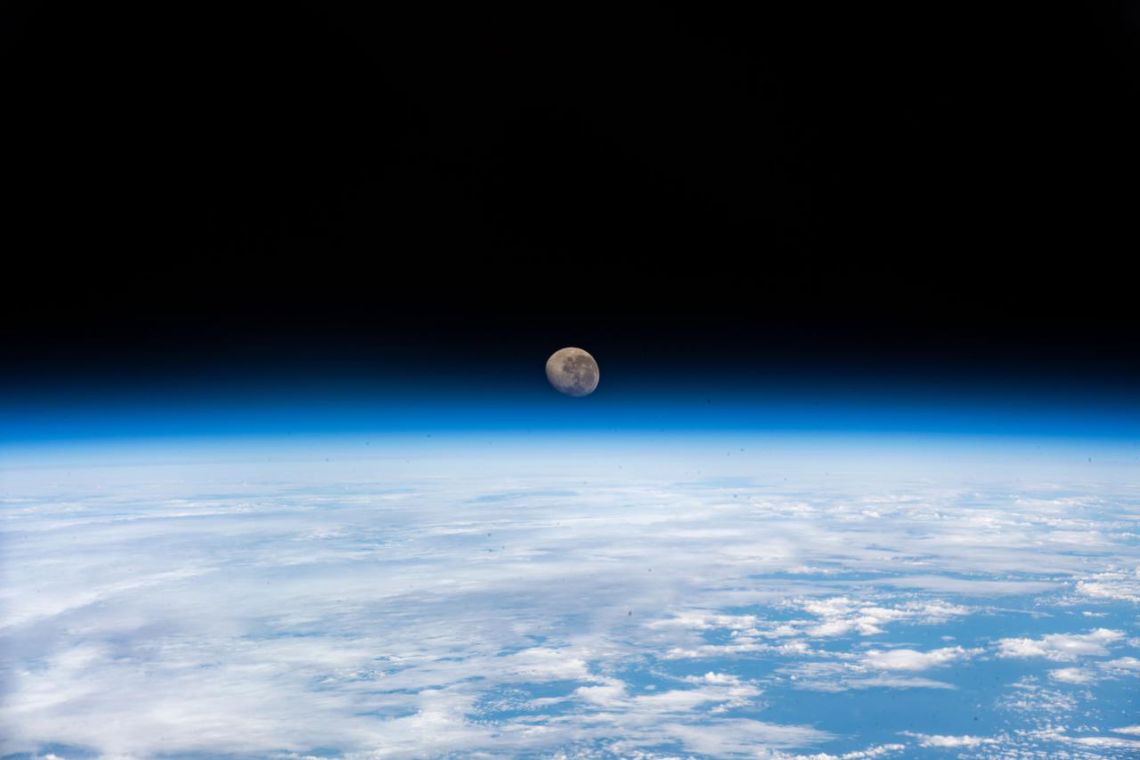New Lab Focuses on Regulating Burgeoning Space Activity
DUCIGS program brings together academics, diplomats, tech to find solutions

A growing heap of space junk, the launch of thousands of internet-providing satellites and private trips to low-earth orbit are creating a new era of space activity.
All this also brings new worries about an extraterrestrial free-for-all.
How the international community should respond and regulate these and other developments in space is the focus of a new lab at Duke.
The Duke Center for International and Global Studies (DUCIGS)/Rethinking Diplomacy Program’s Space Diplomacy Lab provides a platform for multidisciplinary academics, students, diplomats and commercial spaceflight leaders to work together on policy proposals and solutions to help “secure and sustainable future of humanity in space.”
Solutions will require stepped-up diplomacy involving experts from fields including science and technology, national security, international diplomacy, and, of course, space, panelists said last week during a webinar sponsored by the lab.
“We sit here now at a new era of space activity that is unfolding every day before our eyes,” said moderator Benjamin Schmitt, a postdoctoral research fellow at the Harvard-Smithsonian Center for Astrophysics, a DUCIGS/Rethinking Diplomacy fellow and co-chair of the Space Diplomacy Lab.
“An increasing number of nation states and private-sector actors are now capable of deploying a wide array of space technologies to low-earth orbit and beyond. The immense economic, scientific and societal potential of today's space renaissance has unlocked a fresh set of opportunities for unprecedented innovation and international strategic cooperation beyond earth's atmosphere.”
He added that these developments require “anticipatory diplomacy.”
“Without urgent risk mitigation to address a growing list of space security and regulatory challenges facing the global community, humanity's burgeoning off-planet future could be grounded before it truly blasts off.”
Schmitt said the space lab at Duke will conduct research, publish analysis and host seminars that focus on exploring diplomatic strategies and how to update treaties governing space debris.
One specific concern is the launching of tens of thousands of satellites – or “megaconstellations” -- into orbit to provide global high-speed internet access in the next few years.
“Without a real understanding of what the carrying capacity of low-earth orbit is and what the side-effects of having all of these satellites in low-earth orbit will mean for our future, and if they can be sustained, especially when we don't have an agreement on the positioning of all the satellites,” said Loren Grush, a science reporter for The Verge.
Russia’s invasion of Ukraine – and its annexation of the Crimean Peninsula from Ukraine in 2014 – are also impacting its international partnerships on space exploration, said Jeff Foust, a senior staff writer for SpaceNews.
Russia is a key partner with the International Space Station. He said Russia is becoming more closely tied to Chinese space efforts and has little interest in NASA’s Artemis program – a U.S.-led international human spaceflight program that seeks to return humans to the moon by 2025.
“We may be seeing the beginning of the end of a Russia-Western cooperation in space now that may not survive after the end of the space station,” Foust said.
A Russian space agency leader warned last week that sanctions imposed on his country in response to its invasion of Ukraine could destroy Russia’s involvement in the space station.
Finding common ground among nations is no easier on space issues than it is on Earth, Foust said.
“It’s very difficult to come up with any sort of binding international treaty when it comes to anything related to space internationally,” he said.
But the challenges provide an opportunity for the United States to lead an international effort to find solutions, said former U.S. ambassador Robert Pearson, also a fellow with DUCIG’s Rethinking Diplomacy Program.
“Think about the leadership that the America showed at the recent climate control summit and think about President Biden's attempt to call the world democracies together to focus on human values that we all cherish,” he said. “And the U.S. still has the power of convening that neither Russia nor China have, nor do nations trust them to have.
“So with that power in hand we can put together a coalition of nations, many of whom depend on us either for values or for economic assistance or for security, to try to deal with some of these problems.”
Ramin Skibba, a reporter who covers space for Wired, said establishing rules and guidance should happen before the next trip to the moon.
“I do think the next step that we will have to pay close attention to is the moon, there’s going to be a lot of action on the moon, both with private companies and with the Artemis missions and … China and other countries,” he said.
“And so now is the time, instead of doing a launch first, ask questions later strategy that has happened to be the de facto situation before, I’d love to see more, you know, norms or some kind of rules emerge, maybe building on the Artemis accords, but before we have a lot of Rovers and landers and eventually astronauts on the moon.”
Giovanni Zanalda, DUCIGS/Rethinking Diplomacy program director and co-chair of the lab, introduced the event. The program is supported by a grant from the Josiah Charles Trent Memorial Foundation Endowment Fund.
Watch the full webinar here.